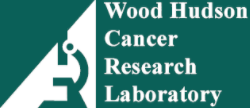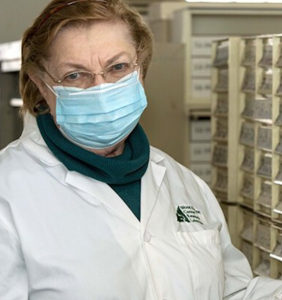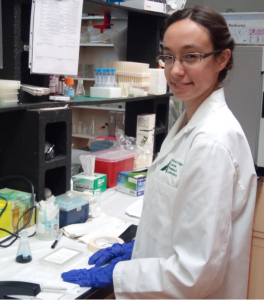By Larry Page
Wood Hudson Cancer Research Laboratory
Introducing university undergraduate students to cancer research is an extremely important part of the mission of Wood Hudson Cancer Research Laboratory (WHCRL), located at 931 Isabella Street in Newport.

Since its incorporation in 1981, WHCRL has through its Undergraduate Research Education Program (UREP) assisted in the education and training of nearly 350 (52% female) undergraduate students. Over 100 UREP students have gone on to obtain advanced degrees in science and medicine. Many of those now are on the staffs of biotechnical and pharmaceutical firms. Many practice here in the Tri-state area.
On March 13, 2020 in response to federal, state and local COVID-19 mandates, WHCRL closed its physical plant except for the presence of a single caretaker. However, WHCRL immediately conceived, developed, and in April, 2020 inaugurated, a twelve-week virtual program of basic training in cancer research for ten undergraduate university students.

Dr. Julia Carter
The program began on Monday, May 18, with a pre-course test designed to measure basic knowledge concerning cancer. A post-course examination before the course ended on Wednesday, August 5, 2020 allowed for a determination of the students’ knowledge of cancer research. Three virtual Zoom classes were held each week, from 9 a.m. to 4:30 p.m. each Monday and Tuesday, and from 9 a.m. to noon on Wednesdays.
Each student was furnished a copy of a current cancer research textbook and was required to interpret and lead a discussion on a chapter therein. In addition, each student was required to interpret an article in a current scientific journal and explain the findings of that article to staff and fellow students. The students were treated to inspiring guest lectures by eight highly-experienced professionals in cancer biology, physiology, molecular biology, immunology, pathology, statistics, pediatric neuro-oncology, pharmaceutical drug discovery, and genetic toxicology.
At a time when most educational institutions in our area were closed, the students were challenged with scientific course work under the close supervision of a university science professor that involved regular assignments and testing using Google Classroom and other virtual media.
All students also received special permission to attend all meetings of the virtual 110th Annual Conference of the American Association for Cancer Research, June 22-24, 2020.
All this was very demanding, but the most demanding aspect of the twelve-week program was the challenge given to each student to respond to one of the Ten Provocative Questions posed by the National Institutes of Health in 2019. Each student designed in detail an experimental study to address the provocative question he or she chose during the first month of the program.

The student then regularly briefed staff and fellow students on the progress being made. On the final two days of the program, each student gave the staff and fellow students a formal oral presentation of the experimental study conceived and designed by that student. An unexpected dividend was given the student whose Provocative Question research was entered into a contest and awarded a prize by the Kentucky Academy of Sciences. Another unexpected dividend occurred as the restrictions caused by the pandemic lessened and WHCRL was allowed to re-open its physical plant on a limited basis in early 2021.
It became possible to comply with CDC masking and distancing guidelines allowing students to perform some laboratory work. They elected to perform an immunohistochemical study on human breast cancer which involved staining microscopic slides from formalin-fixed paraffin embedded tissues from 59 patients with normal, pre-invasive, invasive, and metastatic breast cancer. These stained microscope slides were mailed to Wood Hudson’s Director of Pathology, who was located 280 miles away. Using a digital microscope and Zoom, it was possible for the pathologist to review the slides with the students and Dr. Julia H. Carter, President of the WHCRL. Using images transmitted digitally and data generated by the students, the students prepared a poster presentation titled, Phosphoserine Phosphatase (PSPH) Expression and Breast Cancer Progression in Women. This poster was submitted to the virtual 111th Annual Meeting of the American Association for Cancer Research and was accepted as part of the Undergraduate Caucus and Poster Competition
.

One year later, in May, 2021, with the restrictions associated with the COVID-19 pandemic somewhat more relaxed, but still very much in effect, Wood Hudson has entered into a repeat of its UREP program. Eighteen new students have already attended the virtual 111th Annual Conference of the American Association for Cancer Research on May 17-21, 2021. The balance of the 2021 schedule for these 18 new students will remain unchanged from 2020.
WHCRL, being a not-for-profit organization, relies on charitable contributions and appreciates the support of the Northern Kentucky community. For further information regarding donations, please contact WHCRL at support@woodhudson.org or visit the website.
















